Iran opposes IAEA resolution... to "operate new centrifuges"
Iran confronted the International Atomic Energy Agency and the IAEA's resolution to "cooperate with nuclear inspections" and said it would operate a new centrifuge.
According to Iran's state-run IRNA news agency, Iran's foreign ministry said in a statement released today (22nd) local time that "a resolution that was not agreed on Iran's peaceful nuclear program was adopted without the support of half of its members."
"Iran has emphasized that it will respond to each other if it abuses the IAEA and takes confrontational actions for political and illegal purposes," he said. "Iran's chairman of the Atomic Energy Commission has issued guidelines to start operating new centrifuges."
"Technology and safety cooperation with the IAEA will continue strictly in accordance with relevant agreements, and Iran is ready to participate constructively with all stakeholders in accordance with international law principles and norms," he added.
Earlier, in a resolution yesterday (21st), the 35-member IAEA Council urged Iran to cooperate with the inspections it is obliged to receive under the Nuclear Nonproliferation Treaty and the NPT.
It also called for Iran to provide answers regarding the discovery of uranium particles around two facilities that it did not declare as a nuclear facility.
The resolution, introduced by France, Germany and the United Kingdom, was approved by 19 Member States.
China, Russia and Burkina Faso were said to have voted against it, while the other 12 countries abstained, Reuters said.
Earlier in June, the IAEA board adopted the same resolution calling on Iran to cooperate with local inspections and withdraw measures to ban supervisors from entering.
Iran's 2015 Joint Comprehensive Plan of Action (JCPOA) stipulated that Iran can only possess 202.8 kg of low-enriched (3.67%) uranium.
The agreement at the time called for Iran to lift economic sanctions against Iran in exchange for a halt to its efforts to develop nuclear weapons.
However, the U.S. unilaterally scrapped the nuclear deal and reinstated sanctions against Iran during former President Donald Trump's presidency in 2018.
Since then, Iran has increased its uranium concentration by 60%, while also increasing its stockpile.
Uranium, which has increased its concentration to 60%, can be used for nuclear weapons if it goes through an additional process to increase its concentration to 90%.
In the meantime, suspicions have emerged that Iran is conducting secret nuclear activities at undeclared facilities, but Iran has refused to monitor and visit inspectors by the IAEA.
In addition, according to a recent closed report shared by the IAEA with member states, Iran's 60% uranium stockpile (182.3 kg) as of October 26 was higher than that (164.7 kg) in the August report.
※ 'Your report becomes news'
[Kakao Talk] YTN Search and Add Channel
[Phone] 02-398-8585
[Mail] social@ytn.co.kr
According to Iran's state-run IRNA news agency, Iran's foreign ministry said in a statement released today (22nd) local time that "a resolution that was not agreed on Iran's peaceful nuclear program was adopted without the support of half of its members."
"Iran has emphasized that it will respond to each other if it abuses the IAEA and takes confrontational actions for political and illegal purposes," he said. "Iran's chairman of the Atomic Energy Commission has issued guidelines to start operating new centrifuges."
"Technology and safety cooperation with the IAEA will continue strictly in accordance with relevant agreements, and Iran is ready to participate constructively with all stakeholders in accordance with international law principles and norms," he added.
Earlier, in a resolution yesterday (21st), the 35-member IAEA Council urged Iran to cooperate with the inspections it is obliged to receive under the Nuclear Nonproliferation Treaty and the NPT.
It also called for Iran to provide answers regarding the discovery of uranium particles around two facilities that it did not declare as a nuclear facility.
The resolution, introduced by France, Germany and the United Kingdom, was approved by 19 Member States.
China, Russia and Burkina Faso were said to have voted against it, while the other 12 countries abstained, Reuters said.
Earlier in June, the IAEA board adopted the same resolution calling on Iran to cooperate with local inspections and withdraw measures to ban supervisors from entering.
Iran's 2015 Joint Comprehensive Plan of Action (JCPOA) stipulated that Iran can only possess 202.8 kg of low-enriched (3.67%) uranium.
The agreement at the time called for Iran to lift economic sanctions against Iran in exchange for a halt to its efforts to develop nuclear weapons.
However, the U.S. unilaterally scrapped the nuclear deal and reinstated sanctions against Iran during former President Donald Trump's presidency in 2018.
Since then, Iran has increased its uranium concentration by 60%, while also increasing its stockpile.
Uranium, which has increased its concentration to 60%, can be used for nuclear weapons if it goes through an additional process to increase its concentration to 90%.
In the meantime, suspicions have emerged that Iran is conducting secret nuclear activities at undeclared facilities, but Iran has refused to monitor and visit inspectors by the IAEA.
In addition, according to a recent closed report shared by the IAEA with member states, Iran's 60% uranium stockpile (182.3 kg) as of October 26 was higher than that (164.7 kg) in the August report.
※ 'Your report becomes news'
[Kakao Talk] YTN Search and Add Channel
[Phone] 02-398-8585
[Mail] social@ytn.co.kr
[Copyright holder (c) YTN Unauthorized reproduction, redistribution and use of AI data prohibited]
Editor's Recomended News
-
"Korea should clarify where nuclear power plants are responsible"...IAEA recommendations
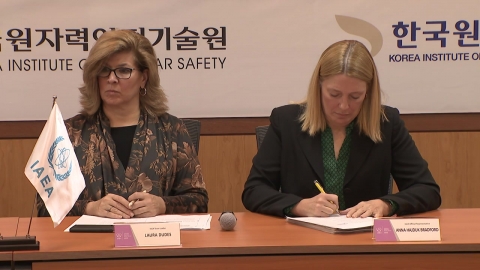
-
The Medical Association's Emergency Committee urges the suspension of medical school recruitment in 2025..."Education Breakdown"
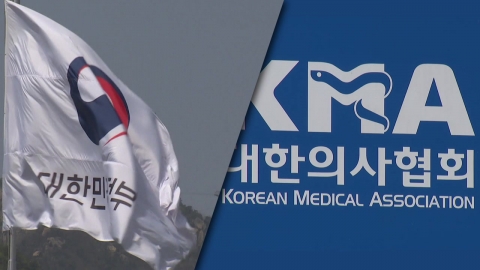
-
An 18-month-old infant with a severed finger...15 Seoul Hospitals Denied Employment

The Lastest News
-
Japan sends a far-right greeting to the memorial service...Government's "Doubt."
-
재생
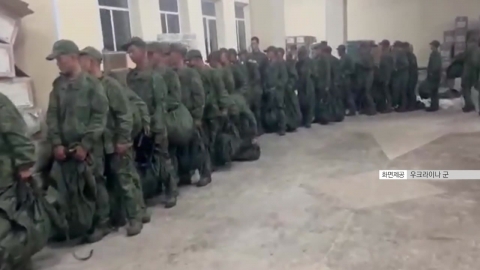 "Russia supports Pyongyang's air defenses in exchange for troops"...Confirmation of military aid to North Korea
"Russia supports Pyongyang's air defenses in exchange for troops"...Confirmation of military aid to North Korea -
재생
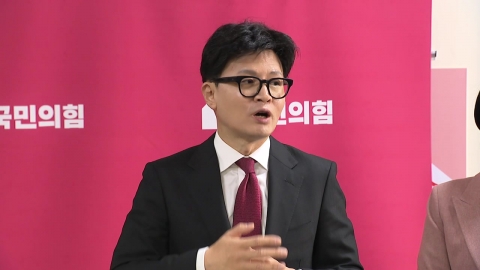 Re-investigating the accuser of the 'People's Power Bulletin'...Police investigation 'main focus'
Re-investigating the accuser of the 'People's Power Bulletin'...Police investigation 'main focus' -
재생
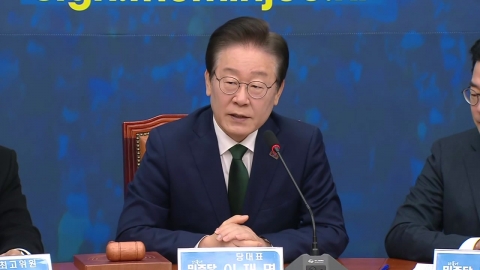 Prosecutors appeal against Lee Jae-myung's first trial ruling for "violation of election law."
Prosecutors appeal against Lee Jae-myung's first trial ruling for "violation of election law."



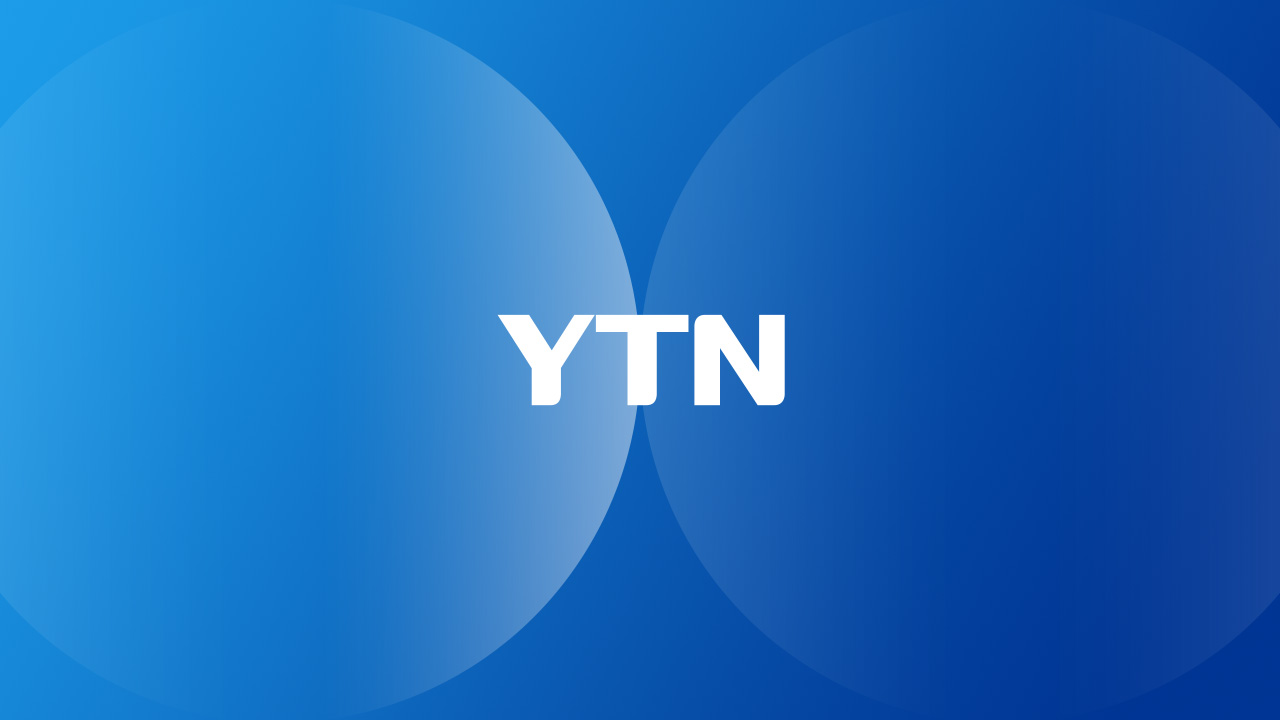


![[Y Issue] The last hint of New Jeans, sobbing eyelet...Trophies of Girls Who Can't Laugh](https://image.ytn.co.kr/general/jpg/2024/1122/202411221530125174_h.jpg)


